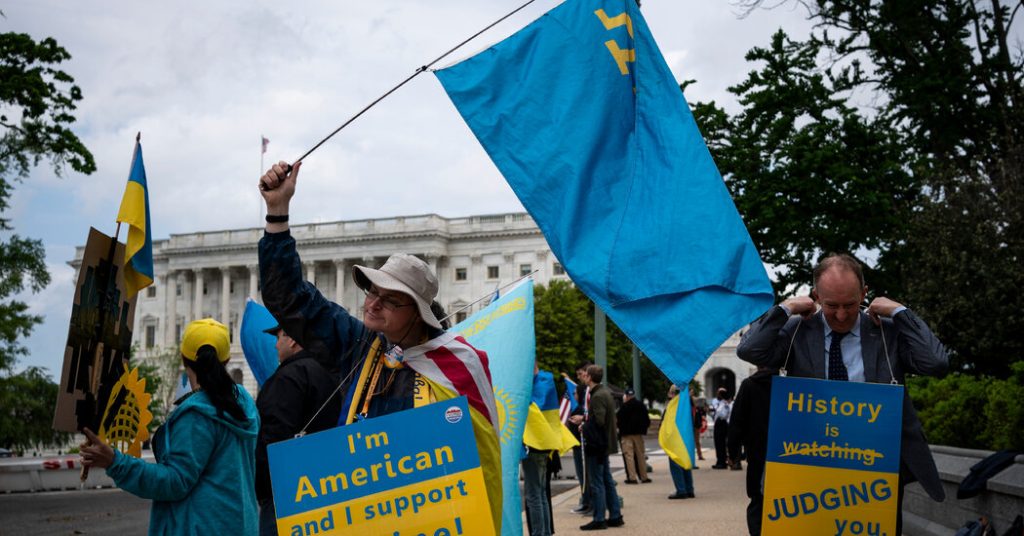The House vote on Saturday to provide $61 billion in American aid to Ukraine highlighted a division within the Republican Party, showing that not all members are fully aligned with former President Donald J. Trump and his “America First” movement. While some Republicans voted for the aid, others voted against it, reflecting the influence of Mr. Trump’s isolationism and his movement’s skepticism towards Ukraine. Mr. Trump himself had softened his opposition to Ukraine aid in the days leading up to the vote, but some of his most vocal allies in the House, like Representatives Marjorie Taylor Greene and Matt Gaetz, led efforts to block the aid.
Mr. Trump’s foreign policy isolationism has been a central tenet of his presidency, with a shift towards closer relations with Russia under Vladimir V. Putin. Despite staying quiet on the issue before the vote, some of his supporters in the House, such as Representative Lauren Boebert, expressed strong opposition to the aid, questioning the loyalty of those who supported it. Even Donald Trump Jr. criticized the handling of Ukraine aid by Speaker Mike Johnson, reflecting a deep-rooted skepticism towards Ukraine that extends back to the 2016 election.
The vote on Saturday underscored the ongoing influence of Mr. Trump on the Republican Party’s foreign policy stance. While mainstream Republicans like Representative Larry Bucshon invoked former President Ronald Reagan in justifying their support for the aid, more staunchly pro-Trump Republicans showed a willingness to take their opposition to foreign aid even further. Representative Scott Perry, a member of the hard-right Freedom Caucus, voted against military aid to Israel, reflecting a commitment to the “America First” ideology.
For Mr. Trump, the aid package’s passage represented a political setback, as he had floated the idea of making the aid a loan rather than a gift to Ukraine, which did not come to fruition. The House vote also signaled a broader divide within the Republican Party on issues like border security, with some members, like Representative Nancy Mace, expressing frustration that the Ukraine aid passed without addressing domestic concerns first. However, Mr. Trump’s central pitch to voters remains his ability to end the conflict in Ukraine, framing himself as the only one capable of resolving the situation as the largest land war in Europe since World War II continues.
Foreign policy has long been a weak spot for Mr. Trump’s control over the Republican Party, with previous measures aimed at preventing a president from unilaterally withdrawing the US from NATO serving as a point of contention. The House vote on Saturday, which saw 101 Republicans break with Mr. Trump’s isolationism, raised questions about the future direction of the party on foreign policy issues. While some Republicans like Representative Larry Bucshon argued that aiding Ukraine was in the best interest of national security, others, like Representative Scott Perry, pushed back against aspects of the aid package.
In the lead-up to the vote, Mr. Trump sought to stay neutral and keep his fingerprints off the decision, making no effort to pressure Republicans to vote against the aid. Despite the passage of the aid package, his campaign continues to emphasize his potential to resolve the conflict in Ukraine and end the war before the November elections. As the Republican Party grapples with divisions over foreign policy, the influence of Mr. Trump and his “America First” movement remains a central factor in shaping the party’s stance on international issues.








